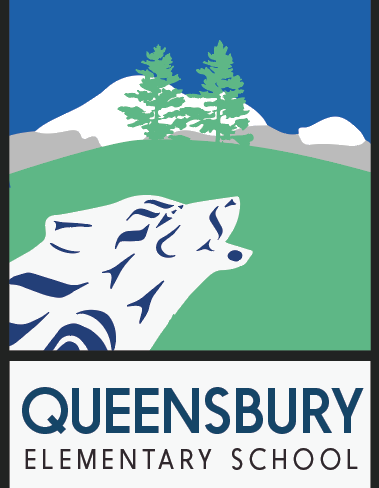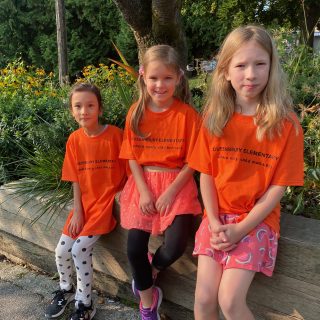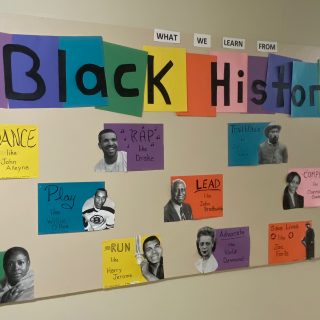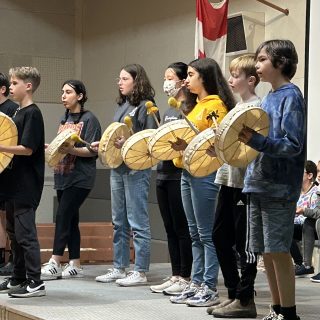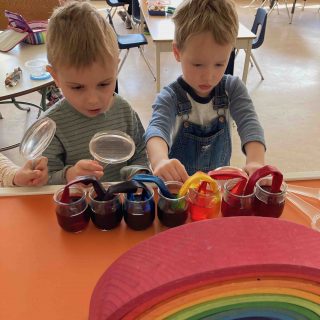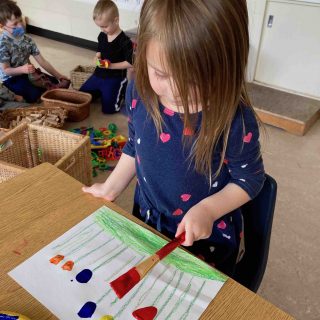Vision to Goal Setting
What is our Vision for Learning?
Education at Queensbury provides all children an equal opportunity to acquire the knowledge, skills and attributes needed to maximize their potential in intellectual, social and physical development
At Queensbury we believe:
- In fostering an environment so that everyone feels welcome and included
- Everyone matters
- Every child should have the opportunity to succeed
- Teaching self-awareness and self-management is important for students, staff, and parents
- In collaborating with parents and community partners for the success of all learners

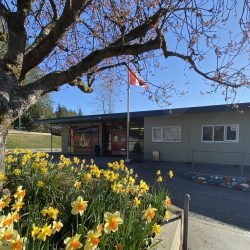
We are fortunate to live in a beautiful part of the world and we thank the Coast Salish people, specifically the Skwxwú7mesh Nation and Tsleil-Waututh Nation, upon whose unceded traditional territory the North Vancouver School District resides. We value the opportunity to learn, share and grow on this traditional territory.
Queensbury Elementary is tucked into a forested area of the North Shore, at the top of Grand Boulevard. We have the luxury of a 360 degree playground and 2 city parks close by and on-site privately owned daycare. Our 300+ students and staff are supported by a wonderful, well established community of parents and neighbours. Our family of schools consists of Brooksbank Elementary, Eastview Elementary, Ridgeway Elementary, and Sutherland High School.
When you enter Queensbury, we hope you feel welcomed and valued.
Team
Queensbury’s Core Leadership Team represents representatives from all areas of the school. makes recommendations to guide our actions. It is a voluntary team who also provides leadership in the school planning process.
The team for the 2022-2023 school year includes:
- Kelly La Roue- Principal
- Carly Roy- Vice Principal
- Tessa Harrington – primary teacher
- Gabby Lefroy – intermediate teacher
- Stephanie Mon-Kau – parent
- Adam Mallonee – parent
- Lila Green – parent
- Brook Walker – parent
Planning & Implementation
What is our Action Plan?
GOAL 1 (updated for 2023-2024 school year)
To enhance a sense of belonging for students, staff, parents and guests within our school community.
Objectives:
- foster engagement in learning and school activities
- strengthen relationships and continue to build a culture of caring that includes teamwork and collaboration
- practice inclusivity and attend to classroom and school climate
Strategies for Goal 1
- Foster Engagement: emphasize the importance of timely and clear communication (newsletters, meetings, assemblies) between school and families, family groups, buddy class activities, student performances and whole group assemblies, Welcome Back Assembly, Pancake Breakfast (hosted by the Lions) Terry Fox Run, Truth and Reconciliation assembly and activities, Hallowe’en parade, team sports, Black History Month, Pride Month, National Indigenous Day assembly and activities, daily announcements that encourage student messages, band concerts / fine arts performances, Earth Week activities, Grade 7 Farewell, End of year celebration assembly
- Strengthen Relationships: PAC events (Welcome Back BBQ, Parent night out, Love Ball, Movie night, Book Fair, Spring Fair) family groupings, buddy classes, Thanksgiving family group activities, Peer Leaders, reading buddies, peer leaders, lunch monitors for primary classes, 3R recognition of students, monthly staff connection events, Saleema Noon parent and student presentations that support Sex Education and family diversity
- Practice Inclusivity: Implement First People’s Principles of Learning (Invite members of District AbEd Team to support student learning), Truth and Reconciliation Assembly and activities, Kindness Month and Black History themes in February, BIPOC activities and daily announcements to enhance knowledge of international celebrations, recognition of cultural groups and holidays, National Indigenous Day and Pride activities in June, fun day, intermediate STEM activities, “push in support” for learning support
New Strategies to implement (2023/2024):
- school wide 3R tickets- recognizing student greatness and contributions to their school
- welcome committee / brochure for new families
- ask for parent volunteers to help translate community messages if needed
- arrange with PAC for a “new family buddy system”
- implement PAC Class Reps
GOAL 2 (Updated for 2023-2024)
Increase student engagement
Objectives:
- Foster opportunities for students to increase self-awareness to: learn self regulation strategies, monitor their own learning, explore their strengths, learning styles, interests and passions, advocate for themselves
- Increase Physical Literacy and Outdoor Learning opportunities for students
- Use differentiated teaching /learning strategies to recognize each person’s strengths and find opportunities to celebrate learning
Strategies for Goal 2
- continue to build a diverse library collection with a focus on BIPOC and LGBTQ+ texts
- continue with school wide Second Step lessons
- increase opportunities to participate in extra-curricular activities: clubs, sports, leadership roles
- highlight students bi-monthly based on SEL attributes
- continue with morning music / messages / Friday jokes that urge SEK and BIPOC initiatives and monthly themes around diversity and inclusion
- monthly standing item on staff meeting agenda and within EA meetings (building relationships)
- Include non-enrolling and CUPE staff in classroom Second Step lessons
- Teacher participation in FOS activities
- Participate in, and implement district physical literacy initiative
- Student / Teacher/ Family goal setting
- Commit to using SEL activities in family grouping activities throughout the year
- continue with morning announcements that merge SEL with BIPOC initiatives and monthly themes of inclusion
- Monthly standing item on staff meeting and discussion with weekly EA meeting
- Include non-enrolling and CUPE staff in classroom Second Step lessons
Strategies to implement in 2023-2024:
- build community connections with the focus on experiential learning (bring in workshops)
- school challenges: kindness challenge, healthy living challenge
- survey students to determine what they find most engaging at school
- build community connections through service learning
- start the day with meaningful quotes (morning announcements)
- provide leadership opportunities at all grade levels
- investigate the use of Zones of Regulation
- Use Universal Design strategies to ensure all learners are included
- Explore and share differentiated learning strategies
Monitor Evaluate & Adapt
What are our Indicators of Progress?
What are our Indicators of Progress?
- How will we know when we’ve reached our goal?
- collect anecdotal comments from TTOC’s and guests or parents (quick survey developed)
- feedback from staff and students (develop a survey)
- create a two or three question “exit” interview that allows us to collect feedback from staff/families that leave
- staff, students and parents will begin to see and use evidence of shared language (goal setting, inclusion, and problem solving language)
- we will gather data including evidence from report cards, FSA data for grade 4 and 7’s
- Middle Years Data (available every other year)
Areas for Further Development at Queensbury:
We continuously examine how our School Plan informs and reflects our values and our practices. By identifying our goals and aligning them with District goals, we are working toward being more inclusive with our actions and intentions. We continue to draw on our school plan when:
- planning school based professional development activities
- implementing school wide initiatives (Truth and Reconciliation activities, Kindness month, Black History month, and Pride Month, National Indigenous Day activities)
- learning resources guide budget decisions
- there are changes to curriculum, instruction, and assessment
- communication and engagement of our school community
Communicating Progress
How do we Communicate our Progress?
For Staff
The Queensbury Staff will be kept up to date through:
- email, TEAMS site, sharing files through One-Drive, and the Queensbury and District websites
- daily announcements to include world music, SEL messages, cultural events, and local Indigenous information
- week at a glance provided to staff for school wide activities/ announcements/ “action” items
- Regularly scheduled meetings: Staff Meetings, SBRT, ESBRT, OHS, Primary / Intermediate team meetings, school planning team, and Diversity and Inclusion, and Heath and Safety team meetings
- continue to encourage weekly communication home to parents from classroom teacher or case manager
For the School Community
The Queensbury community will be kept up to date through:
- school messenger email reminders to families
- school based quarterly newsletters
- sharing of announcements and artwork on front entrance way tv monitor
- students record classroom updates in their student agenda
- communication: phone calls, emails, parent-teacher conferences, IEP meetings, report cards
- our school website, and through the Vibrant learning website
- PAC meetings
- PAC bulletin board
- PAC weekly newsletter
Latest Progress & Updates
We are welcoming our families back into our school, and have been so pleased with the turn-out to all school and PAC functions this year!! There is an enhanced feeling of belonging and community spirit this year. Our PAC executive and school leadership teams have modelled collaboration and joy in doing the very best for the Queensbury students this year and it shows! Next year, we are looking forward to including student voices at our meetings and planning sessions.
A summary of 2022-2023:
- continued with implementation of Second Step curriculum (4th year)
- continued with implementation of Family of Schools Ministry Reporting and Assessment Initiative (4th year)
- engaged staff in the process of understanding new Ministry Reporting Order (roll out scheduled for 2023-2024 school year)
- continued with District Food Access program and BC Fruit and Vegetable program (will increase deliveries of the BC Fruit and Veggie program for 2023-2024)
- continued mindfulness of “calming our classrooms and hallways” (decrease clutter; care and pride with student displays)
- in person assemblies this year!! (Truth and Reconciliation Day, Remembrance Day, Kindness/Black History month, Code of Conduct review assembly, National Indigenous Peoples Day, Year End Assembly, Grade 7 Farewell)
- participated in FOS co-ed basketball and triple ball for grade 6/7 students
- invited our district Indigenous Team to Queensbury on several occasions to learn about: Wolf dance, historical perspectives, storytelling, local art (visual and weaving), games including slahal and lacrosse
- created school based and parent committee to support BIPOC teachings and inititatives
- continued the important work of the Diversity and Inclusion committee and met monthly to look at intentional ways of implementing diversity and inclusion
- intentionally focused on Black History month in February, including daily announcements of notable Black Canadians
- intentionally focused on Pride Month in June, including 7 daily announcements about Diversity and Inclusion
- intentionally provided opportunities
- staff initiated learning sessions and participated in district “outdoor learning” activities
- 6 staff members participated in district “Physical Literacy” initiative
- participation in Cheakamus Centre outdoor learning opportunities for grade 3-6 students
- School wide participation in “Science Alive” activities created and presented by Simon Fraser University (PAC / school funded)
- In person “Familiy Appreciation” activity
- In person Year End Assembly and Year End Slideshow
- In person Grade 7 Farewell ceremony

